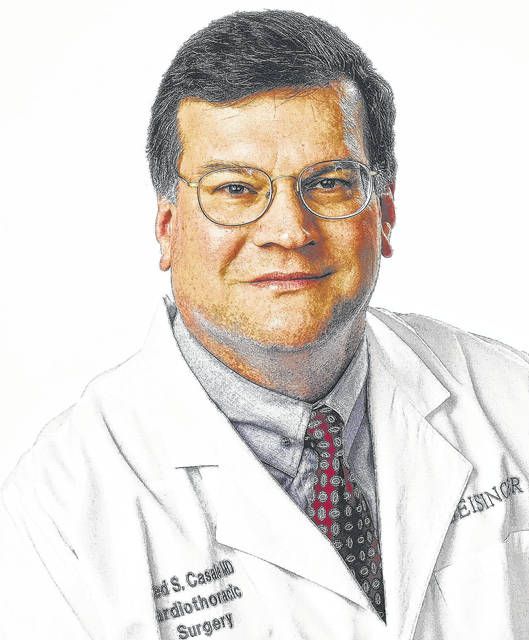Click here to subscribe today or Login.
Although I’m sure the waning cold will offer a few more gasps before calling it a season, as weather has gotten warmer it’s time to open windows, let in fresh air, and get to some spring cleaning.
While visiting my daughter and her family over the Easter weekend, Kate cajoled me and the granddaughters into cleaningout their garage. Imagine the scene, Kate, me a 3- and 5-year-old going to town with brooms and pans.
Seasonal activities like cleaning the house or garage, clearing out storage spaces, and working in the yard can be cleansing for the home and the spirit and good sources of exercise, but they can also lead to injuries like muscle strains, sprains and even hernias.
Injuries are not uncommon as people come out of their more dormant winter lifestyles and become more physically active. Following a few safety tips like stretching before rigorous activity, lifting with the legs instead of the back, and refraining from lifting heavy objects unassisted can save us all some pain.
But despite our best efforts, accidents happen, and it’s important to identify when an injury might be serious and need medical attention. Hernias can range from mild to severe in terms of both discomfort and urgency, but they typically get bigger and more painful as they go untreated, so it’s always wise to get your doctor’s opinion.
A hernia occurs when an organ or fatty tissue protrudes through the wall of the cavity – often the abdomen – in which it is contained. Hernias have a variety of causes but are typically associated with weakened muscles, strain from heavy lifting, or previous injury. They can affect anyone, but people with weakened abdominal muscles due to congenital condition, age, obesity, smoking or poor diet can be at higher risk.
The are several types of hernias, and among the most common are:
• Inguinal hernia occurs when the intestine or bladder extends into the abdominal wall or the groin’s inguinal canal. This type is most common among men.
• Incisional hernia occurs when the intestine protrudes through the abdominal wall at the site of a previous surgical incision. This type mostly occurs in people who are older, overweight or inactive following abdominal surgery.
• Femoral hernia occurs when part of the intestine causes a bulge in the upper part of the thigh, near the groin. This type is most common among women, particularly those who are pregnant or overweight.
• Umbilical hernia occurs when part of the intestine extends into the umbilical opening (belly button) in the abdomen. Infants are susceptible to this type of hernia, which is usually harmless in children.
• Hiatal hernia occurs when the upper part of the stomach squeezes through an opening in the diaphragm. A small hiatal hernia can be harmless, but a larger one can cause symptoms like heartburn.
Hernias can be serious enough to need surgical repair. And a strangulated hernia, one in which the wall closes on the intestine, cutting off blood flow to the bowel, calls for emergency surgery.
Call your primary care physician if you experience any of the following:
• A bulge in the groin or scrotum, or swelling in the scrotum
• Discomfort in the groin that worsens when you bend or lift something
• Heaviness in the groin or abdomen
• Pain or discomfort during bowel movement or urination
• Pain or discomfort near the end of the day, particularly if you were standing a lot
• Symptoms of strangulated hernia, which include fever, vomiting, nausea and severe cramping
If your primary care physician thinks you have a hernia, you may be referred to a general surgeon for consultation and possibly repair. Hernia repair surgery is far less invasive today than it was in the past and is often done with a robotic assist, which uses small incisions and leads to shorter hospital stays and quicker recovery times.
Well, Kate’s garage is clean and orderly, we took it slowly enough that no one was hurt.
To learn more about general surgery and some of today’s techniques, you can visit go.geisinger.org/surgerynews.
Dr. Alfred Casale, a cardiothoracic surgeon, is chief medical officer for surgical services for Geisinger and chair of the Geisinger Heart Institute. Readers may write to him via [email protected].





